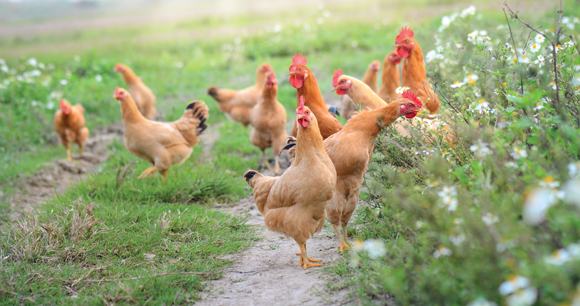Since the Biden administration took the reins in January, animal welfare and organic farming advocates have resumed their push to reinstate the Organic Livestock and Poultry Practices (OLPP) rule under the US Department of Agriculture’s National Organic Program. In April, 40 former members of the National Organic Standards Board (NOSB)—the federal advisory board established to provide recommendations to the USDA regarding organic production—sent a letter to Secretary of Agriculture Tom Vilsack expressing concern about the integrity of the National Organic Standards and urging the department to move forward with a number of NOSB recommendations that have been proposed but not implemented, including the OLPP rule.

The OLPP rule—based on decades of work involving a wide range of stakeholders—would set minimum welfare standards for farm animals raised under the National Organic Program. Specifically, the OLPP rule would establish indoor and outdoor space and enrichment requirements for birds, prohibit certain physical alterations such as debeaking of birds and tail docking of cattle, and require group housing for pigs in most circumstances and for dairy calves after they are weaned, among other noteworthy improvements. While not perfect, this rule represents the first set of comprehensive federal standards for the raising of farm animals in the United States. It would improve the lives of millions of animals and set standards for animal welfare that would better align the organic label with consumer expectations.
The OLPP rule was formally proposed in April 2016 and finalized in January of 2017, just days before the end of the Obama administration. After delaying the rule’s implementation multiple times, the USDA under the Trump administration announced in March 2018 that it would scrap the OLPP rule altogether, despite receiving thousands of public comments opposing the withdrawal. In doing so, the USDA argued the rule would create too much of a financial burden for producers and that the department does not have authority under the Organic Food Productions Act to regulate animal welfare, only animal care—an argument AWI finds to be groundless.
Beyond the fact that the USDA has already determined on more than one occasion that it has the authority to regulate animal welfare, the department’s argument disclaiming this authority failed to acknowledge the connection between animal health and welfare that has been well documented in dozens of scientific studies, including those conducted by the USDA’s own research arm, the Agricultural Research Service. This research tells us the health of farm animals cannot be fully addressed without also accounting for the conditions that impact their welfare.
As the 40 former NOSB members state in their letter, this rule received broad support from the vast majority of organic farmers, businesses, consumers, and advocacy organizations—an arguably rare occurrence when it comes to crafting regulations. With Secretary Vilsack back at the helm of the USDA, there is hope that the OLPP rule will finally be implemented.
You can help: Visit AWI’s website at awionline.org/OLPP to send a letter urging Secretary Vilsack to restore the OLPP rule. Or write to this address:
The Honorable Tom Vilsack, Secretary
US Department of Agriculture
1400 Independence Ave., SW
Washington, DC 20250